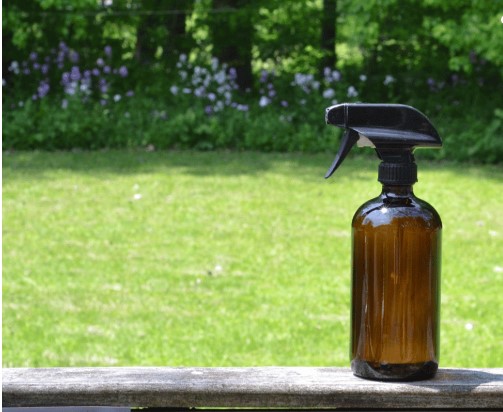
Every year as warmer weather approaches, I make several homemade products for summer. This includes my homemade sunscreen and these natural bug repellent recipes.
I don’t use sunscreen often because it limits vitamin D production. I prefer to eat my sunscreen instead. This homemade insect repellent spray recipe, on the other hand, gets daily use where we live (unfortunately!).
Why Homemade Bug Spray?
At my house, we joke about mosquitoes being the size of birds. They certainly do seem to come in flocks! Keeping bugs away with a good mosquito repellent is a top priority, especially with small children who are prone to scratching mosquito bites.
It’s not just annoying bites that we have to worry about. Some mosquitos can transmit diseases like Zika and West Nile virus. Then there are fleas and ticks infected with Lyme disease, Bartonella, and more.
According to the CDC, about 6% of all mosquito types are known to transmit diseases. But it’s impossible to know which ones when you’re just enjoying an evening outside.
Many natural bug-repellent options from the store aren’t my first option either. The label may say all natural and plant-based but they’re full of soybean oil and undisclosed proprietary ingredients. For example, one popular brand of DEET-free natural mosquito repellent features oil of lemon eucalyptus. However, the other 70% of the ingredients list is a mystery.
What’s the Deal with DEET?
While I am serious about avoiding bug bites, I don’t want to use nasty pesticides and repellents like DEET to do it. DEET is in many commercial insect repellents and has mixed results when it comes to safety.
The EPA weighed in on DEET in 1998 and again in 2014, concluding it doesn’t have health concerns for most people, even for kids. Looking at their long list of warnings and precautions, I’ll stick with my natural bug spray.
Dr. Aboue Donia, a pharmacologist found that rats treated with an average human dose of DEET had some issues. They performed far worse than control rats on physical tasks requiring muscle control, strength, and coordination.
In the same study, DEET caused neurons to die in parts of the brain that control muscles, learning, memory, and concentration. Young children are more at risk because their skin absorbs things more readily.
It’s also interesting to note that so far the EPA has yet to complete an endocrine disruptor screening on DEET. So we don’t know know how it affects hormones.










